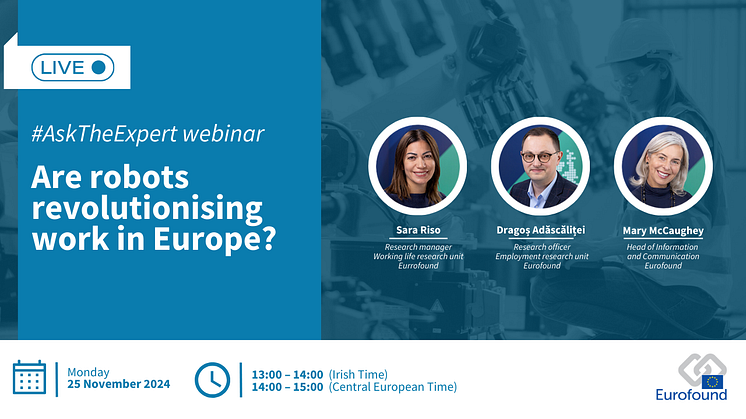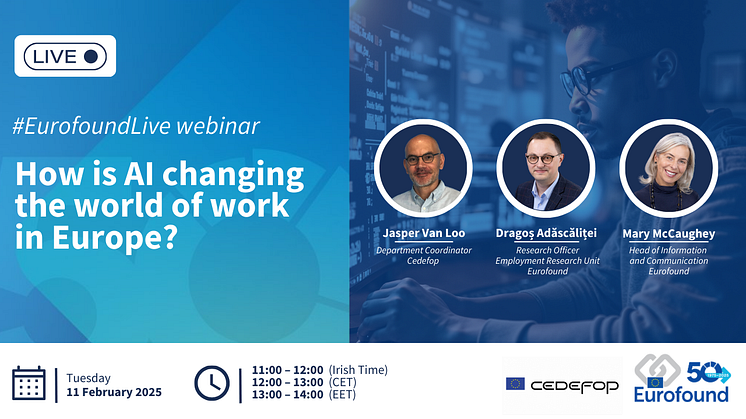
#AskTheExpert: Are robots revolutionising work in Europe?
Event date 25 November 2024 13:00 – 14:00
Location Online
Eurofound is organising an interactive webinar looking at the human-robot interaction in the workplace, with a live Q&A.
As advanced robots become more complex and prevalent in modern work environments, understanding how workers and robots interact and the implications for work organisation and working conditions is crucial for robots’ successful integration into the workplace.
The extent of interaction between workers and robots is expected to increase in modern workplaces due to rapid advancements in robotic technologies. Advanced robotics often leverages progress in artificial intelligence, machine learning and sensor technologies to achieve higher levels of sophistication and versatility.
The enhanced capabilities of new-generation robots facilitate increased collaboration between humans and robots, partly by ensuring safety when humans and robots are working in proximity. This marks a move away from traditional robots, often confined to cages on the shop floor to isolate them from human operators.
Despite the many benefits, there are lingering concerns around the requirement for workers to continually adapt to new or changing tasks and roles, the possibility of monitoring workers’ activities at an unprecedented level of granularity, diminished autonomy and control over the pace of work, and the emergence of new health and safety risks, including of a psychosocial nature.
In this Eurofound #AskTheExpert webinar, Mary McCaughey speaks with Eurofound researchers Sara Riso and Dragoș Adăscăliței about the opportunities and challenges that come with closer human–robot interaction, and whether automation can bring in a productivity boost which could revolutionise the economy and labour market in Europe.



